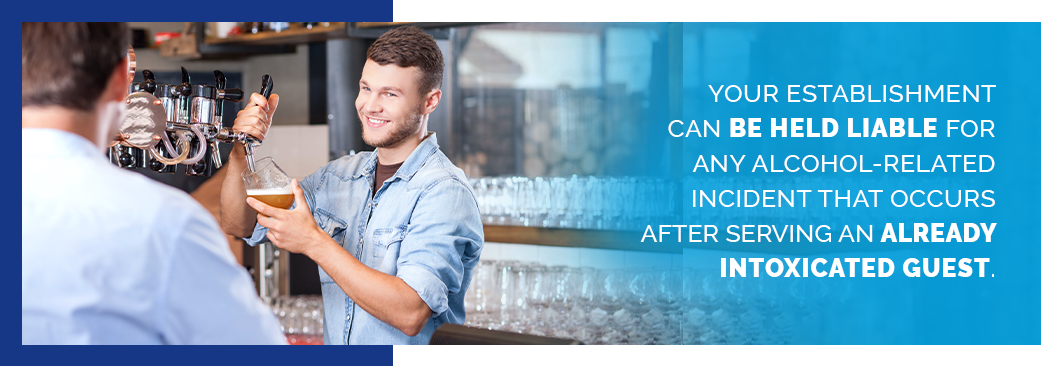BLOG
Promote Responsibility this Holiday Season

It is the time of year we all count on to promote our businesses, particularly our spirits, wine, and beer sales. As people start feeling more festive, they want to consume, and we want to be the first to offer them a drink. As we prepare for the Holiday rush this year, let’s not forget that we want to keep are guests safe and prevent over-service. When you serve alcohol, you know the risks. Risk lawsuits if you over-serve. Risk lives if you serve a drunk driver. Risk your livelihood if you sell to a minor. Here are a few tips that may protect both your patrons and establishment this Holiday season:
Free Download
As an alcohol server, it is your responsibility to prevent guests from becoming intoxicated. However, it isn’t always as easy as it sounds.
Request Identification
Request identification from anyone who appears 35 years of age or younger. Guests who cannot present a valid form of ID should not be given any alcohol.
Because identification is the qualifying factor for serving alcohol, most minors wrongfully enter a bar using a fake or altered ID. Surveys show that over 77 percent of people have successfully used a fake or altered ID at least once. So, how do you make sure no fake or altered ID slips past your restaurant personnel?
How to Check IDs
The back of the ID
All government-issued ID cards have information on the back, including bar codes and/or magnetic stripes. ID checkers should have guests take their IDs out of their wallets to check the back.
The type of ID
Different forms of identification are accepted in different states. Your business can provide ID checking guides that outline characteristics of accepted, genuine identification.
Validation
Many minors use a friend or family member’s old ID, which is likely expired. Restaurant personnel should check the expiration date for validity.
Modification
There are tell-tale signs of an altered ID, such as holographic errors, card thickness, or damage from alteration efforts.
Date of Birth
Teach your staff to calculate age from date of birth. Most state-issued IDs now include the date an underage person will turn 21.
Physical Traits
Physical traits can change over time. Even so, by looking at the photo and the described traits, personnel can see if the cardholder resembles the appearance described
Control access to the alcohol you provide
- Use standard-size glasses and measure the alcohol in mixed drinks.
- Count drinks.
- When serving a guest previously served by a co-worker, check with your colleague to find out how many drinks the guest has already been served.
Offer alternative drinks
Offer soft drinks, fruit juices, bottled water and coffee so that your guests have an alternative to alcohol.
One drink at a time
Allow guests to have only one drink at a time. Discourage competitive or rapid drinking.
Offer appetizers
Offer appetizers, snacks and other food to slow down the absorption of alcohol if you notice a guest showing signs of intoxication.
Don’t leave intoxicated people alone
Make sure anyone who is visibly intoxicated does not receive any more alcohol and is not left alone. Even if the guest is not driving, an impaired guest can be injured or injure others in many ways, not just in a car.
Look for behavioral cues
Look for Behavioral Cues to determine if a guest is approaching intoxication or is already intoxicated:
Relaxed Inhibitions
Alcohol causes people to shift behavior in ways that they would not typically act. This includes someone being overly friendly, depressed and quiet, loud, or making rude comments.
Impaired Judgment
Signs of impaired judgement include complaining about drink strength after having the same drink, faster drinking, escalating drink strength, and making irrational or aggressive statements.
Slowed Reaction Time
Reaction time becomes slower with every drink. If a guest begins moving or talking slowly, having trouble concentrating, losing train of thought, or experiences drowsiness, it may be time to stop service.
Impaired Motor Coordination
This is a classic sign of intoxication. If the guest begins staggering, stumbling, swaying, spilling, or slurring, it’s time to stop service and make sure the guest has a safe way to get home.
Provide transportation
When necessary, provide alternate transportation for impaired guests. Either call a shared ride service or enlist the help of sober friends to take the impaired guest home.

For more information and resources about responsible alcohol serving practices, sign up for our ServSafe Alcohol training program or connect with our team.

